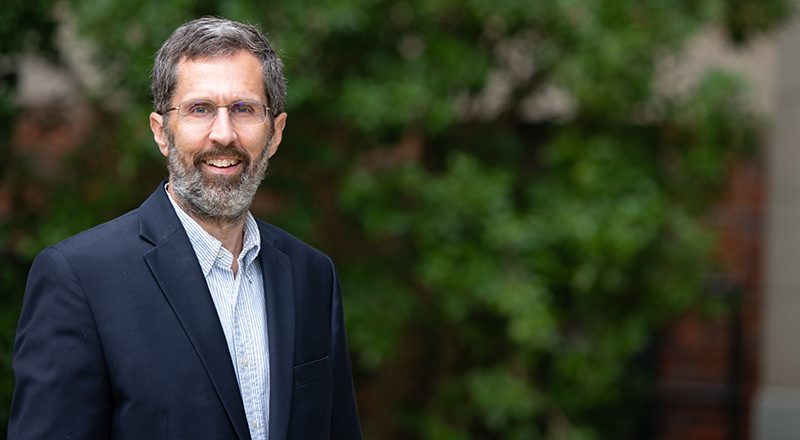A Clemson University researcher and his colleagues have found there is a great deal of revealing and potentially damaging personal information job seekers post about themselves on Facebook.

“Understanding the use of social media in hiring is challenging because many recruiters, when asked, claim they don’t use social media in the hiring process,” said Philip Roth, Trevillian Distinguished Professor of Management in the College of Business. “Yet, anonymous surveys suggest as many as 70 percent of recruiters use social media to assess potential employees with Facebook, followed by LinkedIn, as the two most frequently mentioned sources.”
In their published research, Roth and his colleagues used data from two samples of job seekers to assess what types of information were available on their Facebook sites.
“What’s on job seekers’ social media sites? A content analysis and effects of structure on recruiter judgments and predictive validity” sampled a group of 266 job seekers who mirror the age distribution of the U.S. workforce. A second group included 140 graduating college students who were applying for jobs.
“What we found is a great deal of information that should concern both human resource professionals, as well as job seekers whose social media information is being assessed,” Roth said.
The findings revealed information that is often legally prohibited from being used for employment related decisions.
National origin was identifiable among 56.0 percent of the workforce sample and 66.4 percent in the college sample. There also was information on disability status in 7.1 percent of the workforce sample, but only 0.7 percent of the college sample. Religion was identifiable in 41.4 percent and 57.9 percent, respectively.
The researchers also found job seekers posted other personal information on their Facebook pages:
–Sexual orientation was routinely available in 58.6 percent of the workforce samples and 79.3 percent of the college samples;
–Marital status, 57.9 percent and 73.6 percent, respectively;
-Presence of children, 48.5 percent and 24.3 percent;
–Political views, 26.3 percent and 55.0 percent;
–Sexually related behavior, 15.0 percent and 23.6 percent;
-Gambling, 11.3 percent and 4.3 percent;
-Alcohol use, 25.6 percent and 55.0 percent;
-Tobacco use, 8.3 percent and 2.1 percent;
-Non-prescription drug use, 7.1 percent and 5.7 percent.
The researchers followed individuals from the college sample for six months and had their supervisors rate their level of performance.
“The data suggested there was no correlation between Facebook assessments and later job performance,” Roth added. “That is, recruiter ratings of Facebook sites were unrelated to job performance.”
Roth said using Facebook as a hiring determinant could be a potential hornet’s nest for recruiters.
For example, the social media channel contains information that is likely prohibited from being used in employment decisions or is irrelevant to job performance. Also, the researchers said evidence suggests that recruiter judgments based on social media information might result in a negative outcome for minority applicants. Finally, some applicants consider using their social media sites as a privacy violation.
“All told, social media such as Facebook appear to be a Pandora’s box for companies that choose to assess this information when making hiring decisions,” Roth said.
Roth was joined in the research by, Liwen Zhang, assistant professor, University of New South Wales, Sydney; Chad Van Iddekinge, Bank of America Professor of Management, Florida State University; John Arnold, doctoral candidate, Florida State University; Filip Lievens, Lee Kong Chian Professor of Human Resources, Lee Kong Chian School of Business, Singapore Management University; Stephen E. Lanivich, assistant professor of entrepreneurship and management, University of Memphis; Samantha Jordan, Ph.D. candidate, Organizational Behavior and Human Resource Management, Florida State University.
# # #
Get in touch and we will connect you with the author or another expert.
Or email us at news@clemson.edu

